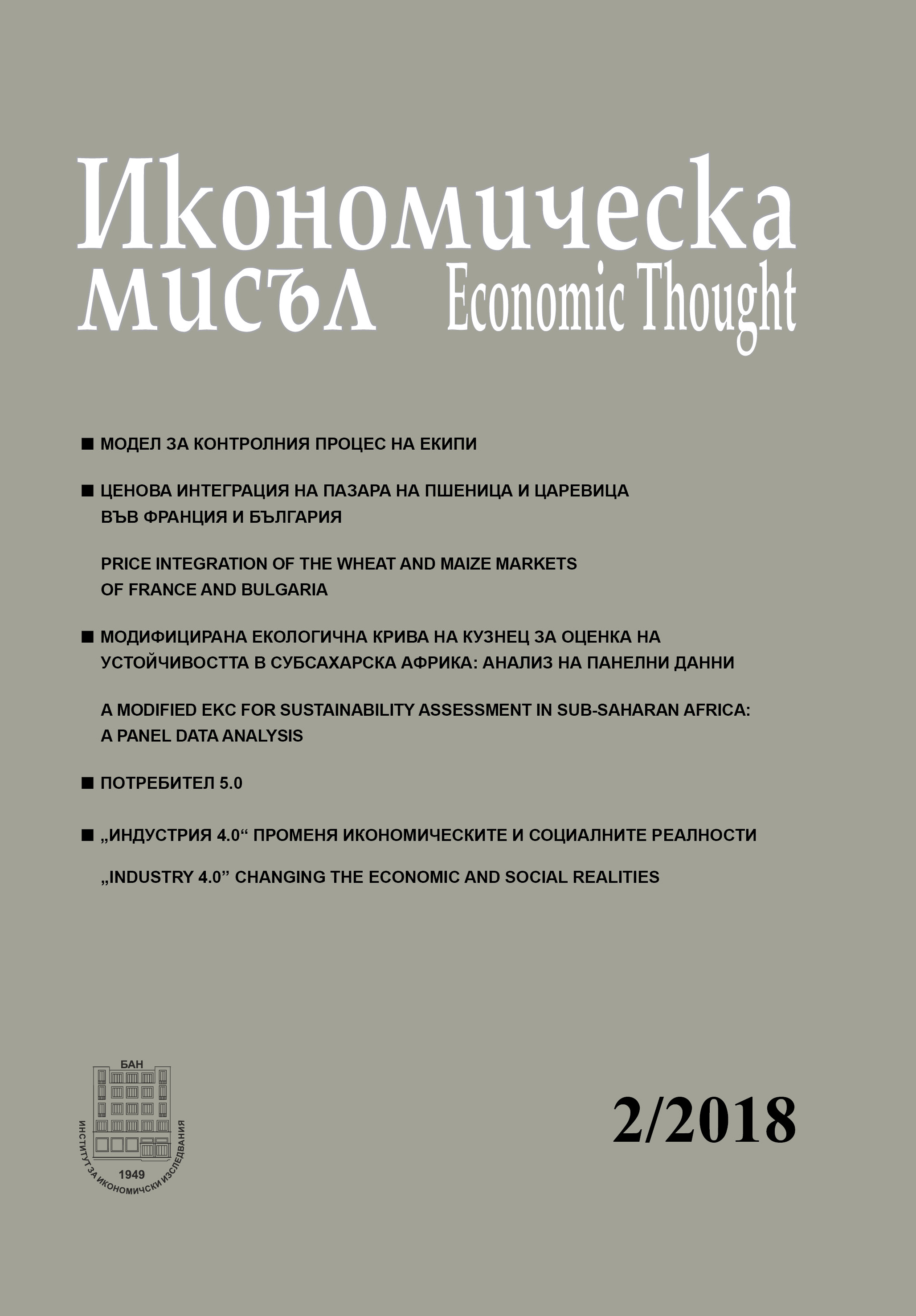


Keywords: European Union; White Paper; Integration.
The aim of the study is to analyze the White Paper on the future of the EU and to answer whether it has managed to trigger the desired debate. The tasks are: analysis of the scenariosin terms of the degree of integration and the consequences thereof; exploring theviews of different stakeholders; analysis of different member states’ positions on the Paper.The methodology includes analysis and synthesis, induction and deduction, etc. Thelimitations are related to the rapidly changing information and its inability to be tracedin the Member States.
More...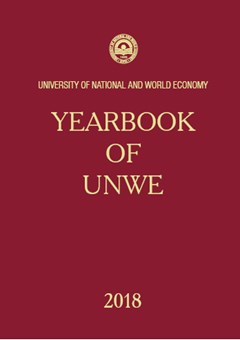
Keywords: digital transformation; Industry 4.0; technologies; SMEs
The objectives of the research are to explore the new technological, organizational and institutional changes leading to the implementation of models of Industry 4.0 into SMEs. The methodology includes a theoretical investigation of the industrial revolutions and current digital transformation processes, comparative studies of the EU policy efforts and national initiatives, as well as empirical research - in-depth interviews with companies in Bulgaria. The results include conclusions based on empirical data gathered within the DIGITRANS INTERREG project concerning the digital readiness of the Bulgarian SMEs.
More...
Keywords: Poverty; social exclusion; income inequality; economic growth; European Union
The aim of the study is to examine two serious challenges facing the European Union – poverty and social exclusion, on the one hand, and income inequality, on the other. Tasks include: 1) analysis of income inequality indicators at EU level and as variations between Member States; 2) empirical testing of two hypotheses by analyzing the regression relationship between economic growth, poverty and inequality in the EU in the period 2010 – 2019; 3) analysis of key factors for income inequality in the EU. The thesis is that income inequality in the EU is a serious social and economic problem, which is positively affected by economic growth and redistribution. The hypotheses that are tested through the econometric analysis are: a) Positive economic growth in the EU leads to poverty reduction and b) Positive economic growth in the EU leads to reduction of inequality (in the period 2010 – 2019). The methodology includes: comparative analysis, regression analysis, induction and deduction, the Bourguignon method „Growth-inequality-poverty triangle“ (Bourguignon, 2004). Recommendations have been made. The obtained results show that: 1) there are significant variations in the social indicators of poverty and inequality in the EU member states; 2) There is a direct link between economic growth and poverty reduction and income inequality in the EU; 3) There are various factors for income inequality in the EU.
More...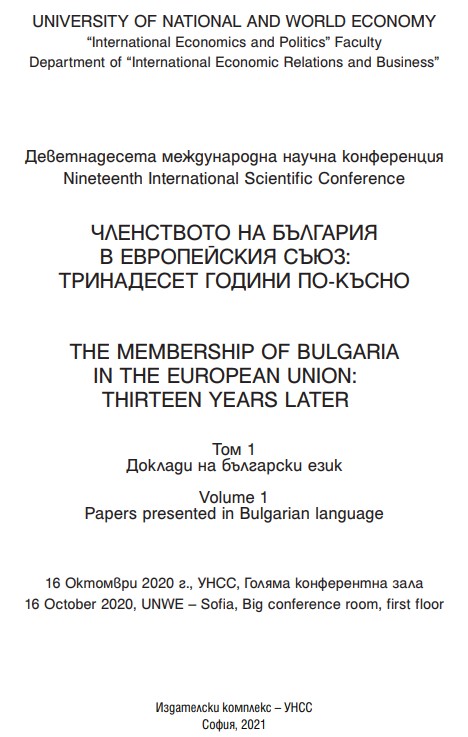
Keywords: Social Convergence; Social Indicators; Bulgaria; EU
The purpose of this article is to examine Bulgaria’s social convergence in recent years – within the country and of the country compared to the EU. The paper’s tasks are to assess the current state of some basic social indicators and to analyze their performance both: by regions in Bulgaria and at national level compared to the European average. The methodology includes comparative, graphical and descriptive analysis based on statistical data. The main results are: an analysis of key indicators for social convergence in Bulgaria and a summary of EU’s recommendations for their improvement.
More...
Keywords: minimum wage; regulation; directive; social Europe; European Union
The purpose of this article is to examine the issue connected with the European proposal to regulate minimum wages in the EU. In October 2020, the European Commission presented a draft directive on the EU minimum wage, which aims to ensure decent wages for workers. The article’s tasks are to assess the current situation with the minimum wage in the EU, the expected effects of the directive and the main challenges related to its implementation. The methodology includes comparative analysis, statistical analysis, induction and deduction. The main results include an analysis of the proposal for regulation, presentation of different approaches for defining the minimum wage, and forecasts for the effect of its implementation.
More...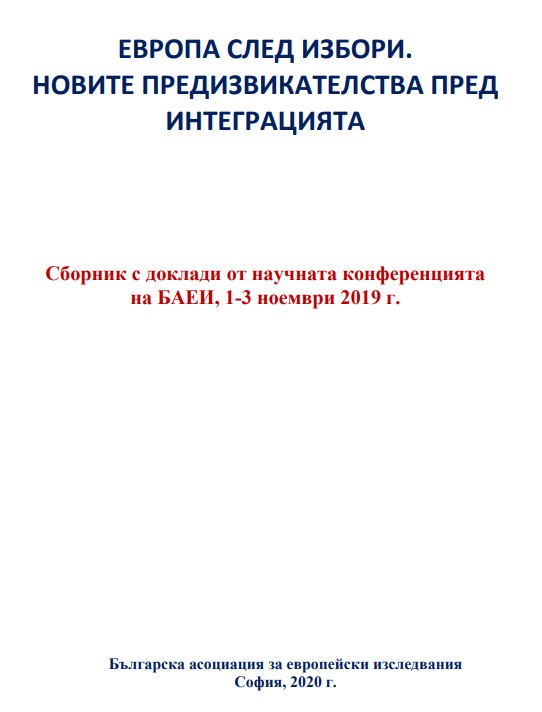
Keywords: Conference Proceedings
Abstracts in English & About the Authors
More...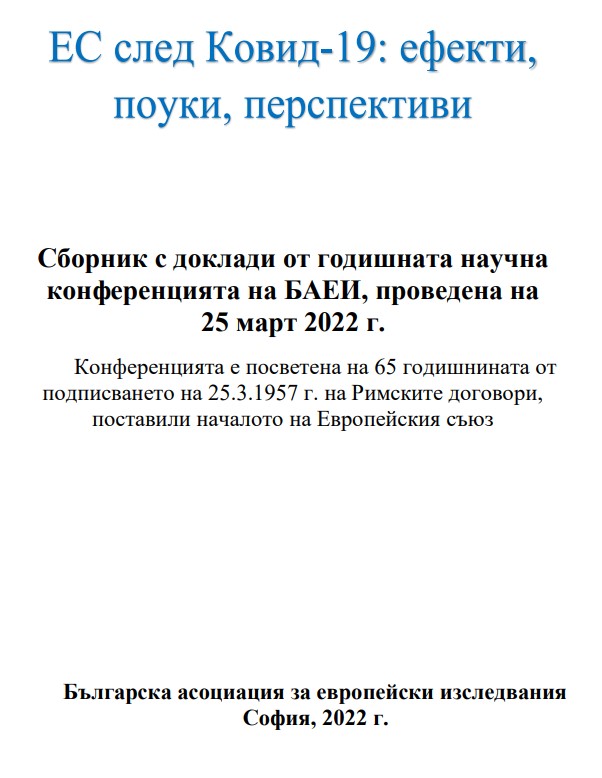

Keywords: Common trade policy; trade power; EU
The aim of the article is to determine whether the EU is a world trading power and what the challenges are for maintaining its position in the future. The applied methodology includes: statistical data analysis, descriptive analysis, comparative analysis, SWOT analysis, induction and deduction. The result shows that the EU is a strong trading power globally and that it uses that both for economic benefits and to influence its trading partners in areas as social rights and sustainable development. It depends on the EU's cooperation with key partners, as well as on linking trade policy to the new challenges.
More...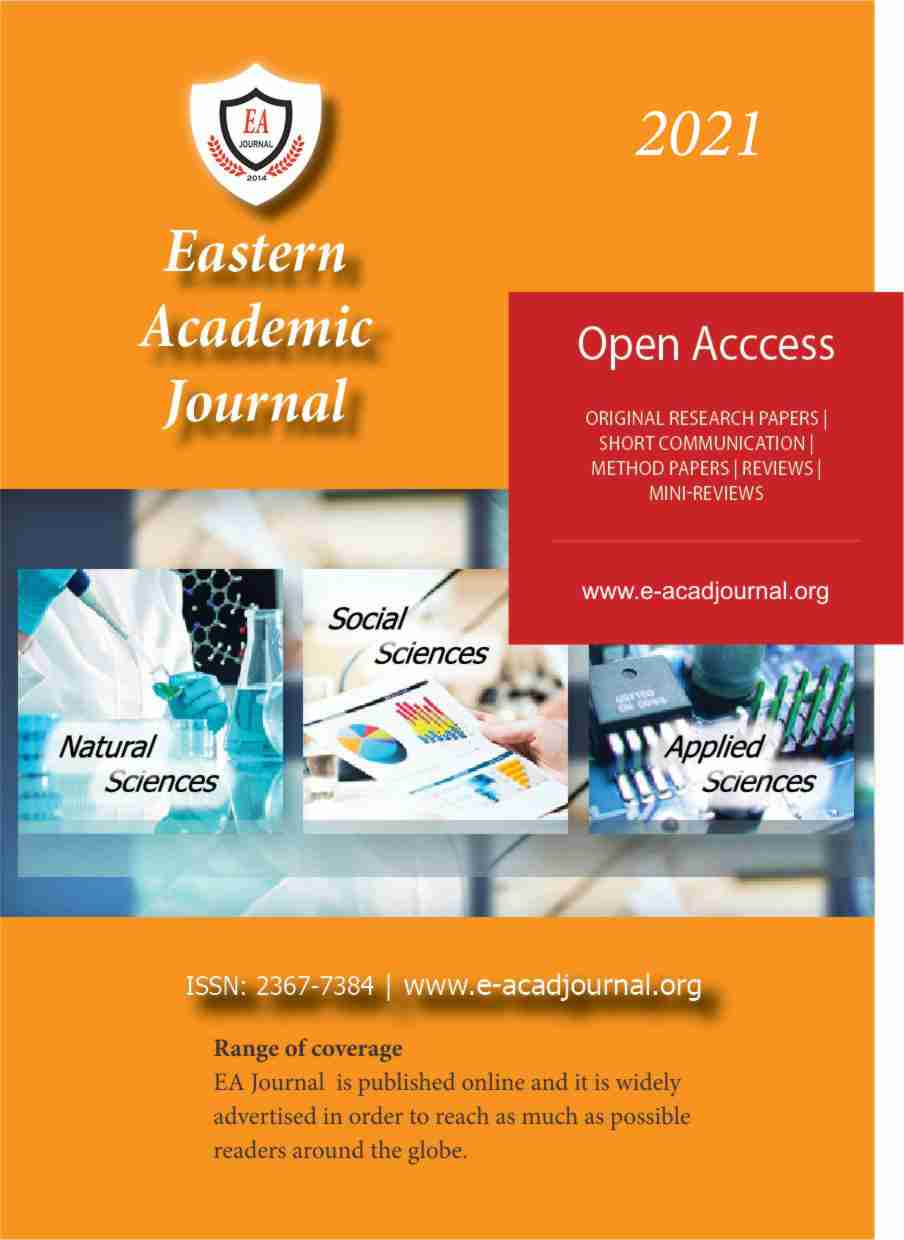
Keywords: digital labour platforms; social challenges; social protection
Over the last decade, digital platforms that connect workers to employers have emerged as a new trend in the world of work. They connect mostly self-employed workers with clients in need of on-demand services and have been able to transform the way, time and place where and where we work. Labor platforms use new "algorithmic control" techniques, including the use of "artificial intelligence". This also has implications for the traditional type of work. The present study analyzes the prerequisites for the emergence and spread of digital work platforms, their different varieties and the consequences for the social protection of employees through these platforms. Examples of good practices in different countries for overcoming these social challenges to workers through regulations are given.
More...